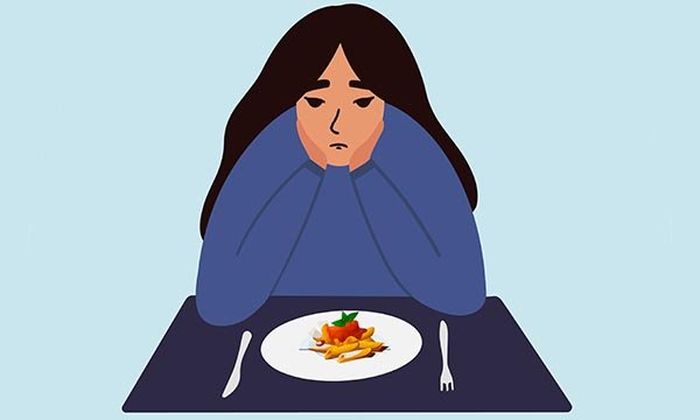‘Reaching out is not a sign of weakness’: James Downs on fighting eating disorders
Imogen Gander speaks to a recent Cambridge graduate about his experiences recovering from his eating disorder at University, and how it shaped the initiatives he has been a part of since leaving

CN: mention of mental health and eating disorders.
“It’s easy to appear high-functioning at Cambridge, but people don’t always see how serious your problems are. You learn how to cope with mental health problems, so it is hard for others to understand that you are struggling.”
These are the words of James Downs, who recently graduated from Cambridge, shedding light on a harsh - and sometimes hidden - reality which often accompanies student life at the University.
In 2016, James dropped out of his PBS degree to focus on sustaining his eating disorder recovery. When he returned in 2019, he was raring and ready to finish a Master’s in Psychology and Education at Wolfson College. But it proved an unexpectedly steep climb.
“At home I had an established community and good social structures, but only appreciated how important these were when I came to Cambridge”
“I thought that the new beginning that accompanied starting Cambridge would be the right level of challenge I needed to complete my recovery, but I didn’t anticipate how difficult it would be,” he tells me.
“At home I had an established community and good social structures, but only appreciated how important these were when I came to Cambridge,” he says, arguing the pressure of studying may have affected his recovery.
James is a firm believer in exploring how we can learn from previous mistakes and help future generations. He has incorporated this philosophy into both his academic studies and his work since University.
For his Master’s thesis, James researched ‘resilience’ in young people and how this nebulous trait can most effectively be developed during one’s time at secondary school. “Adolescence is a great time to set people up for really good lives if there is the right support. I want there to be a new focus on developing resilience in young people, and I am optimistic that this is an area that can get much better.”
Accessing support is an important first step, and fortunately, James found University support systems very effective. “When I reached out to Wolfson, I was pleased that they didn’t need educating about eating disorders and found the Disability Resource Centre excellent.”
“Taking advantage of what is on offer is nothing to be ashamed of - reaching out is not a sign of weakness,” he tells me, “preserving your own health is vital especially as moving to university is already a complicated time to navigate.”
Unfortunately, James struggled to access NHS support in Cambridge at this point in his recovery, and acknowledges that not all colleges may be as supportive as Wolfson was.
“Taking advantage of what is on offer is nothing to be ashamed of ... preserving your own health is vital”
Because of this, he has made it his ambition to improve support networks since his departure from Cambridge. He is now a member of the Expert Reference Group for Eating Disorders for NHS England and was co-chair of the NHS Clinical Network for Eating Disorders for the East of England. In these roles, he advises the NHS on possible frameworks that should be implemented to treat eating disorders more effectively.
“There are systemic problems that prevent everyone who needs help accessing [support]: it isn’t sufferers’ fault, but they often interpret it as their problems not being significant enough,” he says.
“There are signs that things are going in the right direction though, especially as policymakers are listening to those with experience of eating disorders”
James credits his eating disorders for his career path, and is glad he can use his voice to help others. During his break from Cambridge, he discovered the surprising benefit of yoga, arguing that it allowed him to connect with his body healthily once more.
“Yoga comes from the Sanskrit for ‘connection’ and I found that I was able to begin to establish trust with my body. Yoga also complements psychotherapy when in recovery, and allows practitioners to be creative and to communicate without words.”
James now teaches with CAMYOGA. This year during the pandemic, he wanted to ensure this connectivity continued during lockdown, and now counts over 2000 people who have taken his classes, many via frantically-arranged Zoom classes. But there are advantages to this virtual format too.
“I want students to feel connected and that they belong in Cambridge. My sessions were always oversubscribed but Zoom allowed them to be even bigger. I think that people needed a sense of community and familiarity with their former life. Yoga allows creativity and progress without talking - I wanted to share with people that the sport isn’t perfect, but it does help you to appreciate yourself and your flaws without judgement.”
Recovery is an ongoing process for James, but he insists these positive steps and his initiatives are possible even as full recovery lies ahead. “I don’t have to be on the other side to talk about it, and I believe that we can start living before or during recovery.”
Alongside working on various policy making committees, James is a keen researcher and has written for textbooks and journals including the British Medical Journal.
“I’m so proud that I have been able to write chapters for a psychiatric assessment textbook, using my experiences to advance understanding of eating disorders.” He hasn’t ruled out the possibility of a PhD, but insists he will only do so if the right project comes along, most likely in the field of eating disorders.
“Awareness is everything, and we need to be conscious that everyone has a fluctuating, often disordered, relationship with exercise and food”
Reflecting on what he has learnt throughout his recovery and work, James notes that everyone can make life easier for those with eating disorders.
“Awareness is everything, and we need to be conscious that everyone has a fluctuating, often disordered, relationship with exercise and food enhanced by a culture that puts extreme pressure on being successful and conventionally attractive - it is extremely important to recognise this.”
He highlighted that there is often a burden placed on sufferers to begin conversations around mental health and encourages those not currently struggling to take on some of that responsibility. “Everyone should see mental health and eating disorders as being relative to them, and this may help sufferers know that talking about their concerns is a sign of courage.”
James ends by urging those anxious about their mental health, especially with pandemic restrictions still in place, to keep doing what they love when they come to Cambridge, and to reach out for help whenever they can.
 Comment / Plastic pubs: the problem with Cambridge alehouses 5 January 2026
Comment / Plastic pubs: the problem with Cambridge alehouses 5 January 2026 News / New movement ‘Cambridge is Chopped’ launched to fight against hate crime7 January 2026
News / New movement ‘Cambridge is Chopped’ launched to fight against hate crime7 January 2026 News / Uni-linked firms rank among Cambridgeshire’s largest7 January 2026
News / Uni-linked firms rank among Cambridgeshire’s largest7 January 2026 News / SU stops offering student discounts8 January 2026
News / SU stops offering student discounts8 January 2026 News / Cambridge businesses concerned infrastructure delays will hurt growth5 January 2026
News / Cambridge businesses concerned infrastructure delays will hurt growth5 January 2026









